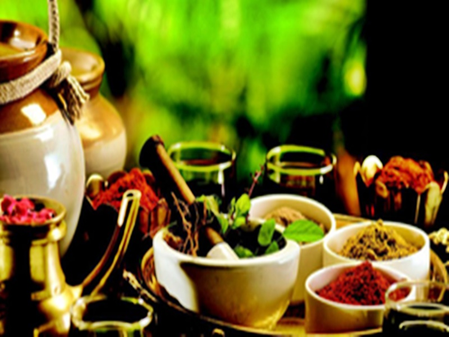New Delhi, 3 May (IANS). Many vegetation in Ayurveda is known due to its medicinal properties. In these, the name of Priyangu is also taken prominently, it is called Birmoli or Dhaiya in Hindi and it is full of nutritious qualities. Due to the medicinal properties present in Priyangu, it is especially used in the treatment of stomach and skin problems.
Priyangu is mentioned in the ancient texts of Ayurveda like Charak Samhita, Sushruta Samhita, Bhavprakash, Dhanvantari Nighantu etc. In these texts, Priyangu has been used as various cycles like paste, decoction, oil, ghee and infusion. It is also included in the treatment of many diseases in the texts of Vagbhatta and Sushruta. The Priyangu plant is found in most areas of India, especially in the mountainous areas of about 1800 meters. This multi -use vegetation not only holds a place in traditional medicine but modern science is also confirming its medicinal properties.
Currently, Priyangu is discussed as three major flora- Calicarpa Macrophila Wahl, Eglaiya Rowksburgiana Mick and Prunas Mahaleb Lynn. Its scientific name is Calicarpa Macrophila Vahal. In English it is called fragrant cherry or beauty berry. It is known by different names in different languages of India. In Sanskrit, it is known as Vanita, Priyangu, Lata, Shubha, Sumga. In Hindi, Birmoli, in the name of Dhaiya, in the name of Mathara in Bengali, in Marathi, in the name of Gahula, in Tamil, in Malayalam, in the name of Chimpopil in Malayalam, Ghanula in Gujarati and in Nepali it is known as Dayalo.
The taste of Priyangu is sharp, bitter and sweet. It is cool, small and dry by nature and is the one who balances the vata-bile defects. It is beneficial in problems like skin tone, healing wounds, vomiting, irritation, bile fever, bloodshed, bloodthirs, itching, pimples, poison and thirst. Its seeds and roots help stimulate the functioning of the stomach and prove useful in urinary disorders.
The use of Priyangu is also very beneficial in the treatment of tooth diseases. Rubbing the powder prepared on the teeth mixed with Priyangu, Triphala and Nagarmotha provides relief in Sheetad (diseases related to gums). Consuming the powder of Shallaki, Tinish, Semal, Plaksha Bark and Priyangu with honey and milk in the bloodsar and bilesar caused by imbalance in eating and drinking is beneficial. Apart from this, the powder of Priyangu flowers and fruit is also effective in indigestion, diarrhea, stomach pain and dysentery.
People facing the problems of UTIs are beneficial by soaking Priyangu leaves in water and drinking extracts. Priyangu also makes difficult delivery easy. Applying the paste of Priyangu root under the navel reduces the competition in delivery. The paste of its leaves, bark, flowers and fruits relieves pain in rheumatism or arthritis. Priyangu is also beneficial in skin diseases like leprosy and herpes.
In addition, in the event of bleeding from the ear and nose, the consumption of red lotus, indigo lotus saffron, pestering and flowers prepared from Phoolpriyangu is beneficial. Giving the powder of Priyangu, Sauviranjan and Nagarmotha with honey is beneficial in vomiting, pipasa and diarrhea. It is rich in poisonous properties, so Priyangu is also very useful in reducing the effects of insecticides or poisoning.
According to Ayurveda, Priyangu leaves, flowers, fruits and roots have the most medicinal properties. In the event of any disease, the advice of Ayurvedic doctor must be taken before using it. Generally, 1-2 grams of powder can be consumed according to medical consultation.
-IANS
PSK/KR









